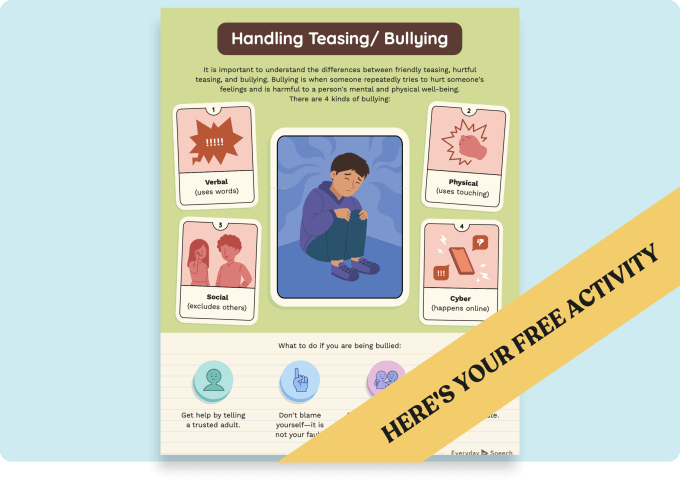Developing Cyber Skills for Safe Online Communication and Social Media Usage
Get free social skills materials
No-prep lessons on self-regulation, emotional recognition, conversation skills, and more.
Sign up hereIntroduction
As educators, it is our responsibility to ensure that our students are equipped with the necessary skills to navigate the digital world safely. The increasing use of smartphones and social media platforms presents both opportunities for connection and potential dangers. By teaching students effective cyber skills, we can empower them to make informed decisions while using technology to communicate with others and stay safe online. In this blog post, we will discuss a no-prep activity, conversation starters, and related skills that promote cyber safety among high school students.
No-Prep Activity: Cyber Safety Scenarios
This activity is designed to help students think critically about various online situations and how to respond to them safely. Begin by dividing the class into small groups. Provide each group with a set of scenarios that involve potential online dangers, such as receiving friend requests from strangers, encountering cyberbullying, or being asked for personal information. Have the students discuss and decide on the best course of action for each scenario, and then share their responses with the class. This activity not only encourages students to think about their own online behavior but also fosters a sense of responsibility for their peers’ safety.
Discussion Questions
- Why is it important to be cautious when accepting friend requests or follows from people you don’t know on social media?
- What are some potential consequences of sharing your location on social media posts?
- How can you ensure that your social media pages are private and only accessible to people you know?
- Why is it essential to communicate with your parents or guardians about your online activities and any suspicious situations you encounter?
- How can you support your friends and classmates in maintaining their cyber safety?
Related Skills
Teaching students about cyber safety is an essential aspect of Social-Emotional Learning, which encompasses a range of skills that promote responsible and respectful behavior both online and offline. Some related skills that educators can incorporate into their lessons include:
- Digital citizenship: Encourage students to be responsible members of the digital community by understanding their rights and responsibilities and respecting others.
- Online etiquette: Teach students how to communicate respectfully and professionally in online spaces, including using appropriate language and tone.
- Privacy and security: Help students understand the importance of protecting their personal information and digital assets, including using strong passwords and being cautious about sharing content.
- Critical thinking: Equip students with the ability to evaluate the credibility and reliability of online information, as well as recognize potential scams or phishing attempts.
Next Steps
By incorporating these cyber skills and related principles into your curriculum, you are helping to create a safe and supportive online environment for your students. To access more resources and sample materials on this topic and others, be sure to sign up for free samples at Everyday Speech. Together, we can empower our students to navigate the digital world with confidence and responsibility.

